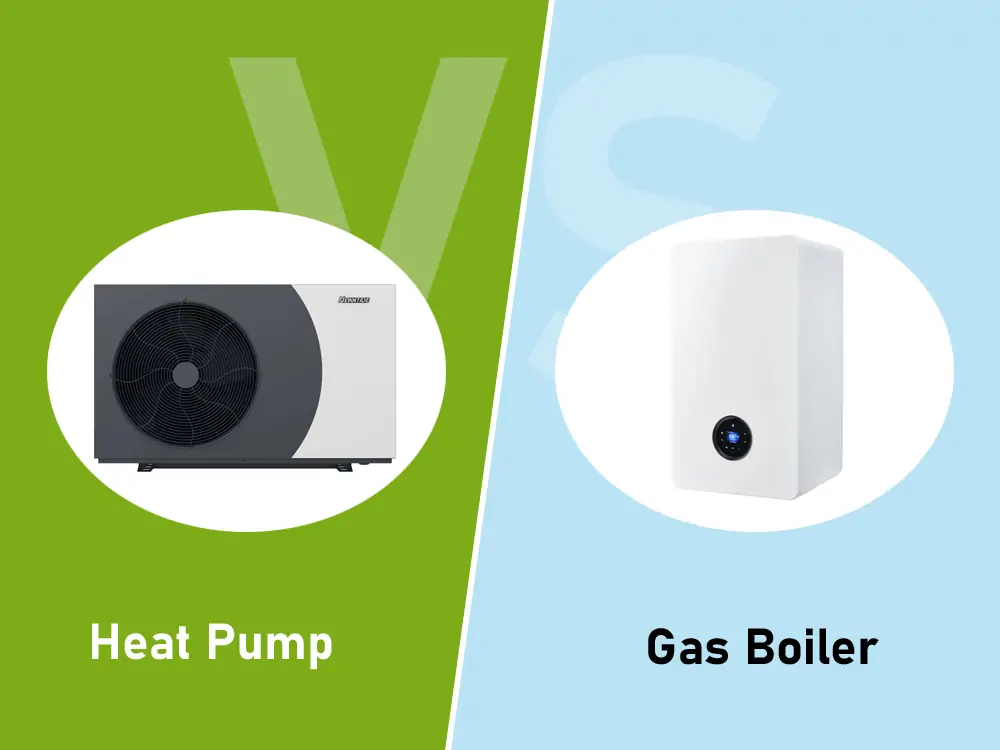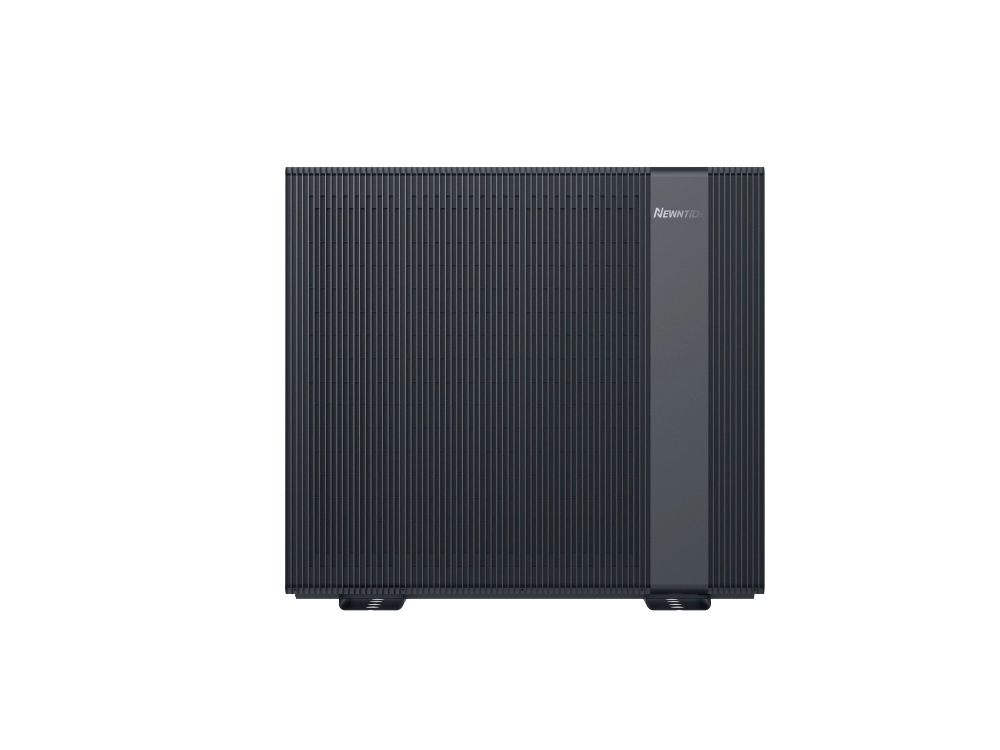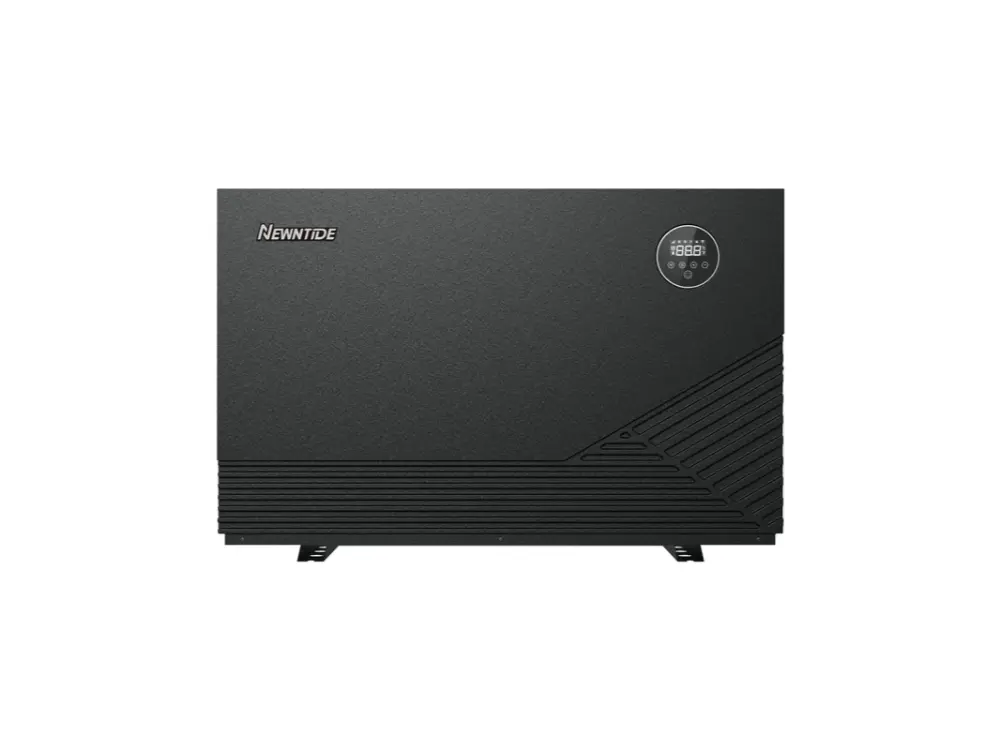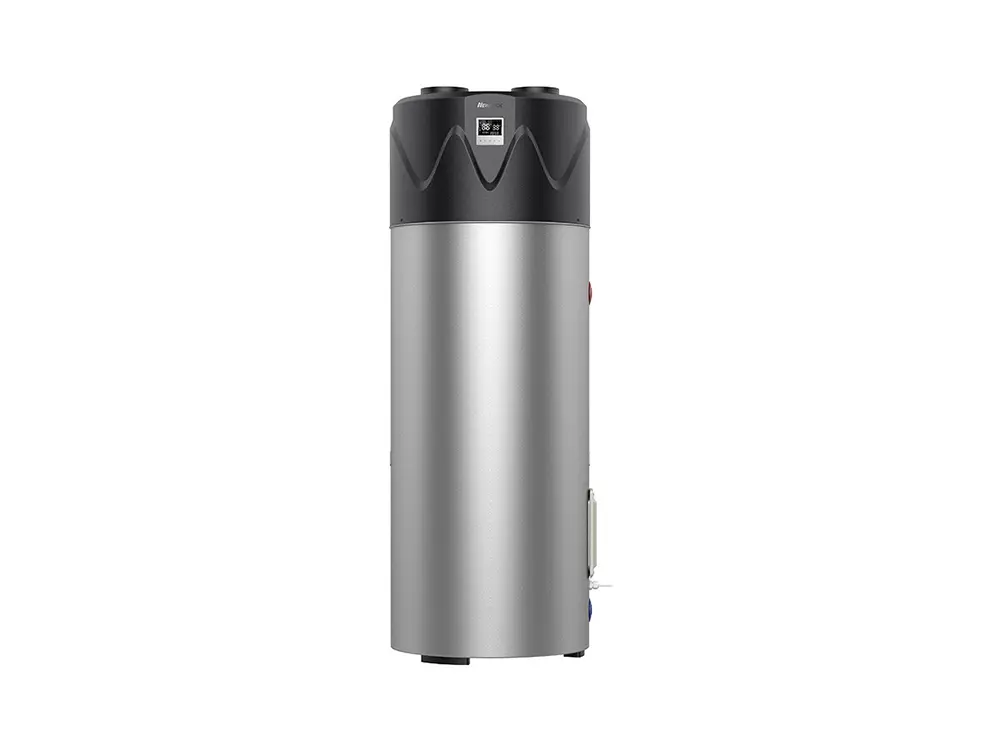
Undoubtedly, deciding between a heat pump vs. gas boiler can be challenging. For ages, gas boilers have been the dominant heating system throughout Europe. Nowadays, heat pumps are experiencing broad adoption as greener and more versatile cooling and heating solutions.
Here, we’ll examine heat pumps and gas boilers comprehensively and outline their distinct differences. We’ll also give insight into the pros and cons of both and answer your queries.
That will ultimately aid you in selecting the fitting heat energy option.
Heat pump
Heat pumps are a kind of electrical appliance. They function by pumping or moving thermal energy from one location to another. That energy is employed for heating, cooling and hot water provision.
Heat pumps operate through a refrigeration cycle. Such appliances extract heat from a low-temperature source via a refrigerant. It is then compressed to raise its temperature.
The heated refrigerant then transfers heat indoors through a heat exchanger. It then cools down, and the process repeats. That helps to maintain indoor temperatures effectively.
Such systems don’t generate heat energy and only extract and move it. That makes them highly efficient.
Types
Typically, there exist three chief types of heat pumps:
- Air-source heat pumps
- Water-source heat pumps
- Ground-source heat pumps
Each of these systems functions similarly. Yet they differ by the source of the heat they deliver. Such systems operate by absorbing heat energy from the outside air, water or the ground respectively.
Advantages
- Your household may currently be heated by a fossil fuel, e.g., oil or gas. By installing such an appliance, you no longer need to utilize these fuels. Thus, you can save money since you won’t have such elevated fuel costs.
- Heat pumps have a diminished carbon footprint as they effectually convert energy into heat. That aids in substantially lessening carbon emissions.
- Such appliances are more efficient compared to conventional heating systems.
- With a lifetime of 20 years or more, heat pumps are long-term, reliable heating solutions.
Disadvantages
- Despite offering long-term savings, heat pumps entail a greater upfront investment.
- Cold weather conditions can diminish air-source heat pumps’ efficiency. Ground-source varieties aren’t significantly influenced by frigid weather.
- Installing such an appliance can be a complex and lengthy process. It may necessitate digging trenches or replumbing pipes.
- Heat pumps do necessitate electricity to function. Taking the example of the United Kingdom (UK), electricity is 3-4 times costlier than gas here.
Gas boiler
Gas boilers are an extensively popular heating system. They employ natural gas to heat water for supplying hot water and for central heating.
Such systems are one of the most prevalent methods for heating households. Specifically, in the UK, the majority of them are connected to the national gas grid.
They transfer heat as a result of burning gas to water. It then circulates via underfloor heating or radiators.
Gas boilers function via controlled combustion. That transfers gas into heat via a highly efficient system. A gas boiler operation encompasses varied components.
In the gas boiler’s combustion chamber, natural gas ignites, generating heat accordingly. It’s then employed for warming the water within the heat exchanger. Here, the thermostat plays a pivotal role in regulating temperature.
The water is then heated to the fitting temperature. Afterwards, it flows through pipes to the radiators in the various parts of the household. These radiators then heat the room.
The cooled water then goes back to the gas boiler, where it is reheated. That completes the cycle.
Types
Typically, gas boilers are divisible into the following types:
- Traditional (non-condensing) boilers: These are less efficient, achieving an efficiency of only 70-80%.
- Condensing boilers: They are more efficient and cost-effective than non-condensing boilers. Moreover, they’re able to achieve over 90% efficiency.
Advantages
- Gas boilers are regarded as cost-effective heating solutions. That’s owing to their reduced upfront expenses and lower operating costs.
- Such heating systems require minimal maintenance and are highly reliable.
- Such systems provide swift heating. Thus, areas quickly warm up, becoming more convenient and comfortable.
- Unlike oil boilers, gas boilers don’t necessitate the creation of a space for a storage tank. That’s because they have the fuel proceeding from the main gas line.
Disadvantages
- Gas boilers can be hazardous if there’s a gas leak. It can outcome in breathing problems and an elevated fire risk.
- Gas boilers are a source of elevated carbon emissions. That demonstrates the impact that such systems and fossil fuels, like gas, have on the environment.
- Gas boilers have a lessened lifespan, commonly around 10-15 years.
What is the distinction between a heat pump and a gas boiler?
The following table compares heat pump vs. gas boiler concerning varying pivotal characteristics:
| Characteristic | Heat pumps | Gas Boilers |
| Cost | Between £4000 to £15000 | Between £500 to £3500 |
| Efficiency | Around 350-450% | Around 95% |
| Carbon Emissions | Low (Approximately 850kg of CO2 annually) | High (Approximately 2500kg of CO2 annually) |
| Installation | Typically, one week | Typically, one day |
| Maintenance | Have lower maintenance requirements (only service each 3 to 5 years usually) | Typically necessitate annual maintenance |
| Lifespan | More than 20 years | 10-15 years |
| Policy | The UK government offers grants of up to $7500 towards heat pump installation expenses; That’s via the Boiler Upgrade Scheme
|
Plans to phase out gas boilers till 2035 have been overturned in the UK; It’s unclear if such systems will be phased out in the future |
| Applicable Scenarios | Generally, provide cooling, heating and hot water | Provide heating and hot water |
FAQs
Which is inexpensive, a gas boiler or a heat pump?
Regarding upfront expenses, a gas boiler is more economical than a heat pump. The latter is also swifter and easier to install.
According to GreenMatch, the approximate cost of a heat pump in the UK varies from £4,000 to £15,000. In contrast, the total upfront expenses range between £500 to £3,500 for a gas boiler.
Which has smaller operating expenses, a gas boiler or a heat pump?
Concerning heat pumps vs. boilers on operating costs, heat pumps take the lead. That’s because of the elevated energy efficiency of the heat pumps.
The energy expenses for heat pumps are typically less than those of gas boilers. That makes heat pump systems cost-effective in the long term.
Yet, electricity is a higher-priced fuel than gas, especially in the UK. You should further take that into account.
Is a heat pump a better choice than a gas boiler?
You may compare a heat pump vs. a gas boiler to determine which is better. Here, a heat pump is an ideal option. That’s because it’s highly efficient and usable for heating, cooling, and hot water purposes.
It has a longer lifespan, involves fewer running costs, and emits less CO2 when operating. That makes it cost-efficient in the long term and environmentally friendly.
Should I substitute my gas boiler with a heat pump?
You should strongly consider replacing a fossil fuel-based system, e.g., a boiler, with a heat pump. On doing this, the following are the benefits you get:
- You can diminish your energy bills
- A heat pump’s energy efficiency is unparalleled when it comes to heating and cooling.
- You reduce your carbon footprint and decrease your dependency on finite fossil fuels, e.g., gas.
- You enjoy year-round comfort. That’s because many heat pumps deliver both cooling and heating, as well as hot water.
Why is my air-source heat pump so pricier to operate?
The following are some reasons why your air-source unit is pricier to operate:
- Inadequate maintenance
- Frigid climatic conditions
- The appliance isn’t of the correct size
- Inadequate insulation of your household
Which one is more eco-friendly, a heat pump or a gas boiler?
Heat pumps are generally more eco-friendly than gas boilers.
In this regard, considering the carbon emissions of both systems is pivotal. According to WhatCost, gas boilers release approximately 2,500kg of CO2 annually. In contrast, heat pumps release approximately around 850 kg of CO2 per year.
Conclusion
Fundamentally, the function of heat pumps and gas boilers is the same. They utilize energy to provide hot water and heating throughout the year. The distinctions between them lie in the way they carry out that.
When comparing heat pumps vs. boilers and selecting one, you must consider varying factors. Briefly, that can encompass:
- Your household conditions
- Budget
- Climate
- Installation time and complexity
- Environmental protection goals
You may be ready to invest in a heat pump. Then, you’ll surely be able to capitalize on its benefits in the coming years.



